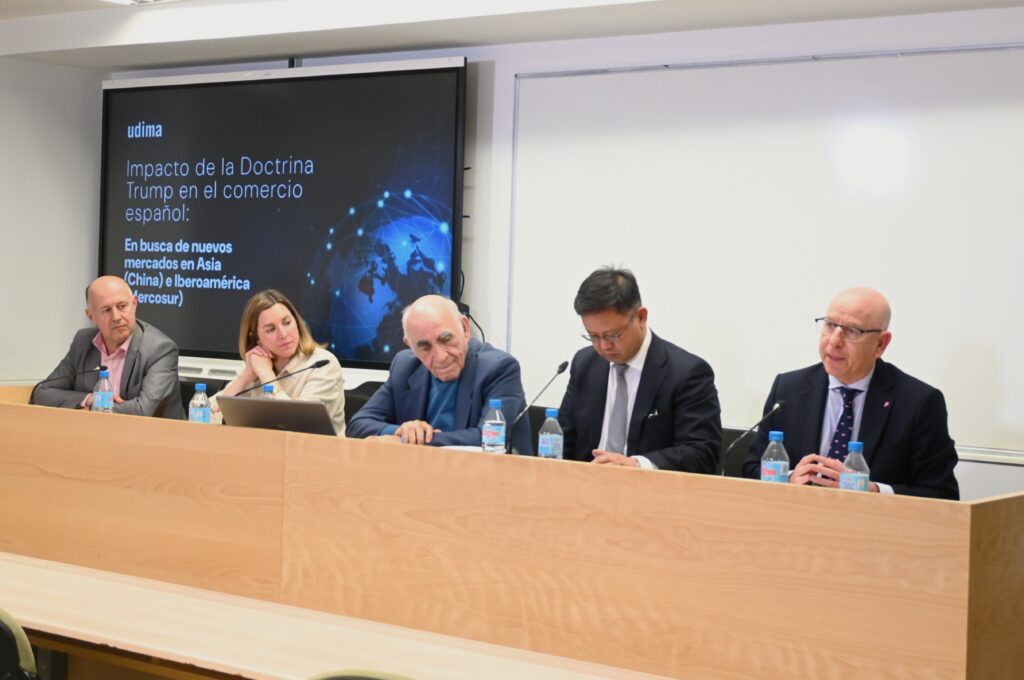The general director of the Interprofessional Agri-Food Association of White-Coated Pork (INTERPORC), Alberto Herranz, stated at the event “Impact of the Trump Doctrine on Spanish Trade: In Search of New Markets in Asia (China) and Latin America (Mercosur),” held at the Center for Financial Studies in Madrid, that the Spanish pork sector is prepared to face uncertain scenarios, but “what is truly worrying is not so much the direct trade impacts—which, even in an extreme situation with the United States, would affect less than 1% of our exports—but the indirect effects.”
During this event, organized by the Agrarian Forum Foundation and the Distance University of Madrid (UDIMA), along with itdUPM, the China Chair, the Official College of Agricultural Engineers of Central and Canary Islands, Pronatur, and the Spanish Journal of Agrosocial and Fisheries Studies, Herranz explained that “in a global and unstable world, we cannot depend on a single partner or remain trapped in bilateral tensions.”

Market Diversification
In this context, he insisted that “market diversification, which the Spanish pork sector has pursued for many years, is not an option, but a strategic necessity.” Regarding China, he explained that, although it is the sector’s main market, accounting for 19.9% of total exports, “bilateral relations are excellent and it maintains great growth potential in high-value-added products and its HORECA channel.”
Along these same lines, in his speech, the Minister Counselor of the Chinese Embassy in Spain, Qu Xun, emphasized the good commercial and institutional relations between the two countries. During his speech, he also recalled that navigation and discovery are part of Spain’s historical heritage and that, after the Americas and the Philippines, it was now time to discover China.
Pilar de Carlos, commercial counselor at the Spanish Embassy in Washington, explained the details of Trump’s tariff policy and stated that it is not really a trade war, but rather a strategy to establish the position of countries and see what they can offer the US.
For his part, Fernando Burgaz, president of the Agrarian Forum Foundation, stated that “we have to understand this moment as a new opportunity and not be pessimistic. It is time to seek new markets and diversify those in which we are already present.”
After the intense debate, one of the main conclusions was that the consequences of these policies are also very uneven across different sectors, with olive oil, table olives, and wine being the most affected.
















